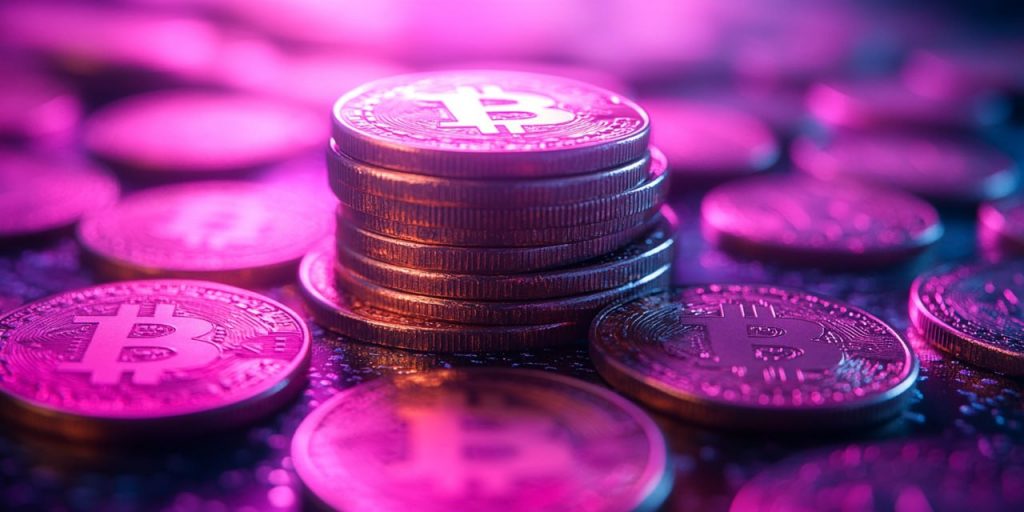
Legislation in the Field of Token Handling
Digital technologies are developing rapidly in the modern world, and new forms of financial assets are emerging. One of these…
Digital technologies are developing rapidly in the modern world, and new forms of financial assets are emerging. One of these forms is tokens — digital assets that can be used for various purposes, including investing, trading, and exchanging. However, despite the growing popularity of tokens, legislation in this area is still being developed.
This topic is relevant because a clear and effective regulatory framework must be created to regulate the treatment of tokens and protect the rights of investors and other market participants. In this article, we will look at the main aspects of the legislation in token handling and the prospects for its development.
This article will be helpful for anyone interested in regulating digital assets, including investors, developers of blockchain projects, and lawyers working in this field.
What are tokens?
A token is a digital asset representing an entry in a distributed database (blockchain). A token can be used as a medium of exchange, a unit of account, or to describe a digital right to an asset.
Depending on their purpose, tokens can be of different types:
- Utility tokens grant the right to use a particular product or service. They are similar to coupons or tickets.
- Security tokens, or investment tokens, are digital analogues of securities and give the right to dividends or a share in the company.
- Real assets, such as gold or oil, are asset-backed tokens.
- Payment tokens are used to pay for goods and services. The most famous example is the Bitcoin cryptocurrency.
Some token shares confirm ownership of project shares, and voting tokens give the right to vote in project management.
It is important to remember that the market for cryptocurrencies and tokens is fraught with high risks, so before investing in them, you must carefully study all aspects and consult a financial specialist.
Features of the legislation in the sphere of token handling
In Belarus, the legislation in token circulation is relatively well-developed. Operations with tokens in Belarus are possible only through crypto exchanges and crypto exchanges that are residents of the Hi-Tech Park. Token handling is regulated in the following areas of legislation:
Tax legislation.
Transactions with tokens are not taxed in 2024. Tokens do not need to be declared. Individuals do not pay taxes on token transactions until January 1, 2025. Companies are expected to pay income tax on certain operations with tokens starting from 2025.
Belarus is expected to introduce taxation of transactions with tokens starting in 2025. You must pay 13% of the tax for transactions with them abroad.
It is planned that in 2025, individuals will not need to pay tax on operations with tokens in some instances:
- Revenue is generated from operations with tokens created by or through residents of the Hi-Tech Park. At the same time, the resident must carry out the corresponding type of activity.
- If the income is received from mining activities.
- In case of exchange of tokens for other tokens (excluding illegal and prohibited activities).
- When an individual receives tokens as a result of donation or inheritance.
Civil legislation.
The Civil Code and Decree of the President of Belarus No. 8 specify that individuals engaged in mining, buying, and selling tokens are unrelated to business activities. It should be understood that the exchange of tokens as an intermediary activity, including for fiat money, other cryptocurrencies, and electronic money, is just related to entrepreneurial activity. It is legal in Belarus to exchange tokens only through companies that are residents of the Hi-Tech Park.
Legislation on prevention of money laundering
In the field of preventing the legalization of criminal proceeds, residents of the Hi-Tech Park who work with tokens are engaged in financial transactions. Their activities include services for creating and placing tokens, including promoting them, as well as creating and placing their own cryptocurrencies. Persons involved in financial transactions must take measures to prevent the legalization of criminal proceeds by participants in monetary transactions with tokens. In particular, to organize internal control, interact with government agencies on suspicious financial transactions, and suspend and block such operations. The state has established signs of suspicious financial transactions, which require monitoring all Belarusian crypto exchanges and crypto broker companies that conduct business using tokens. Such companies that are residents of the Hi-Tech Park are controlled by the Secretariat of the Hi-Tech Park’s Supervisory Board.

Legislation on the Hi-Tech Park
The issue of the possibility of token circulation is regulated in the legislation on the Hi-Tech Park. This legal regime helps develop the high-tech sector in Belarus and provides favorable conditions for IT companies that are residents of the Park, including tax incentives.
Requirements for crypto exchanges have been developed, including “insurance” amounts that must be held in the bank accounts of these companies in Belarusian banks, as well as the procedure for conducting operations with tokens with the participation of other persons.
Belarusian companies have the right to own tokens and perform the following actions:
- Create and place tokens in Belarus and abroad through a resident of the Hi-Tech Park.
- Store tokens on virtual wallets.
- Buy and sell tokens and make other transactions (operations) with them through crypto platform operators, cryptocurrency exchange operators, and other HTP residents.
Starting September 2024, Belarusian individuals have the right to perform operations with tokens only through residents of the Hi-Tech Park: crypto exchanges and cryptocurrency exchanges. This does not prevent individuals from performing operations with tokens on foreign platforms. Restrictions are only related to the entry and withdrawal of tokens/money to foreign trading platforms (from these platforms). For example, you can only legally withdraw money from a foreign trading platform with a transfer to fiat through an HTP resident. Direct purchases of tokens by individuals on foreign platforms bypassing HTP residents and settlements in tokens between individuals are also prohibited.
Regulation of token transactions in other countries
The regulation of operations with tokens abroad depends on the legislation of the specific country where the transaction occurs. Countries may have different approaches to regulating operations with digital assets, including tokens.
In some countries, token transactions may be regulated by securities laws and other laws and regulations, such as anti-money laundering and anti-terrorist financing laws.
For up-to-date information on the regulation of token transactions in a particular country, it is recommended that you contact local authorities or legal consultants specializing in digital asset regulation.
Here are some examples of how token turnover is regulated in different countries:
1. USA
The Securities and Exchange Commission (SEC) regulates the turnover of tokens that are securities. Other regulators, such as the Commodity Futures Trading Commission (CFTC), regulate the turnover of token-based derivatives.
2. European Union
Token turnover is regulated at the EU and individual member states’ levels. The MiCA (Markets in Crypto-Assets) directive sets general rules for issuing, selling, and storing crypto assets, such as tokens. However, each country can adapt these rules to suit its national circumstances.
3. China
China has strict control over the turnover of cryptocurrencies and tokens. Chinese authorities have banned initial coin offerings (ICOs) and restricted using cryptocurrencies for payment.
4. Japan
Japan is actively developing regulations for the turnover of tokens and cryptocurrencies. In 2017, amendments to the Law on Payment Services were adopted, determining the status of virtual currencies and setting requirements for their circulation.
5. Russia
In Russia, the turnover of tokens is regulated by the Federal Law “On Digital Financial Assets, Digital Currency and Amendments to Certain Legislative Acts of the Russian Federation”. The law defines the status of digital financial assets, including tokens, and sets restrictions on their turnover.
It is important to note that these are just some examples of token turnover regulation in various countries. For more accurate and up-to-date information, it is recommended that you contact specialists in the fields of law and finance.
Our Blog
The latest news in our blog
Management Company of the Hi-Tech Park (HTP)
Creating and developing a business within the framework of the Hi-Tech Park (HTP) requires not only technological expertise but also…
Ensuring Legal Cross-Border Payments to Belarusian Employees
Running an international business requires companies not only to engage in strategic planning and effective team management but also to…
Why EOR Is Better Than Registering a Legal Entity in Belarus
For foreign companies looking to hire specialists in Belarus, there is a key choice: either register their own legal entity…
Contact
We’re available for the new projects



